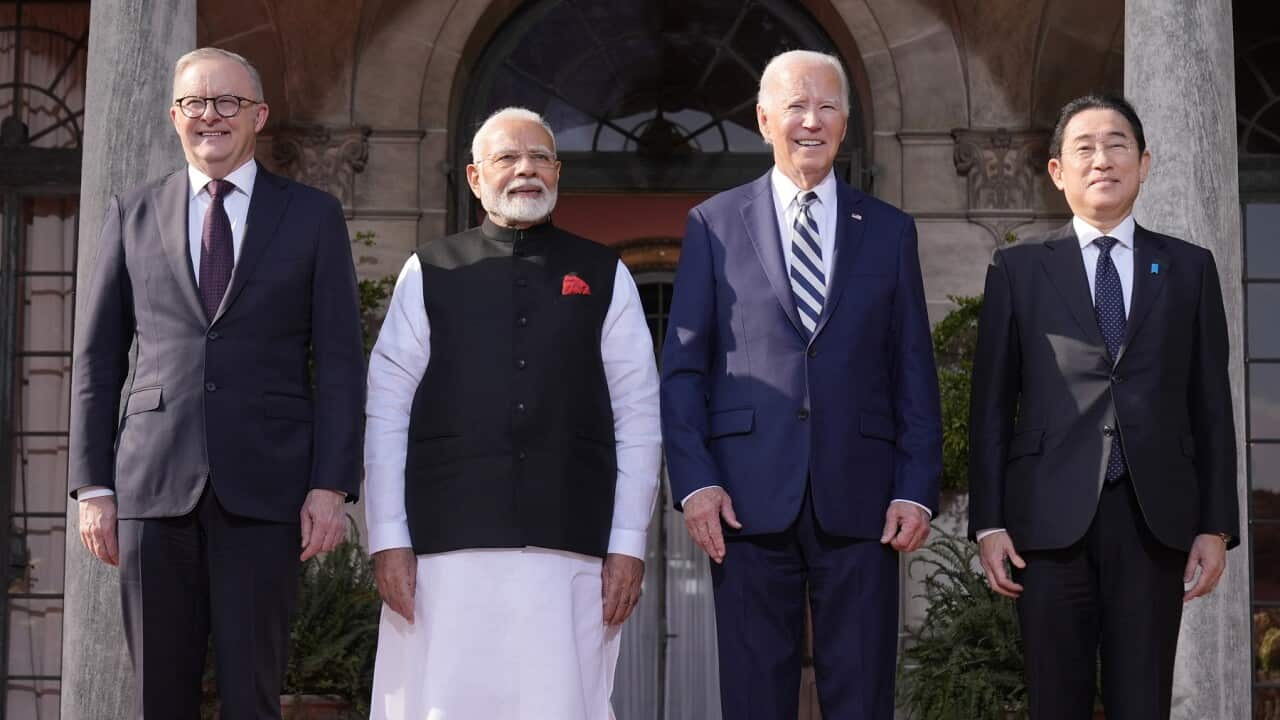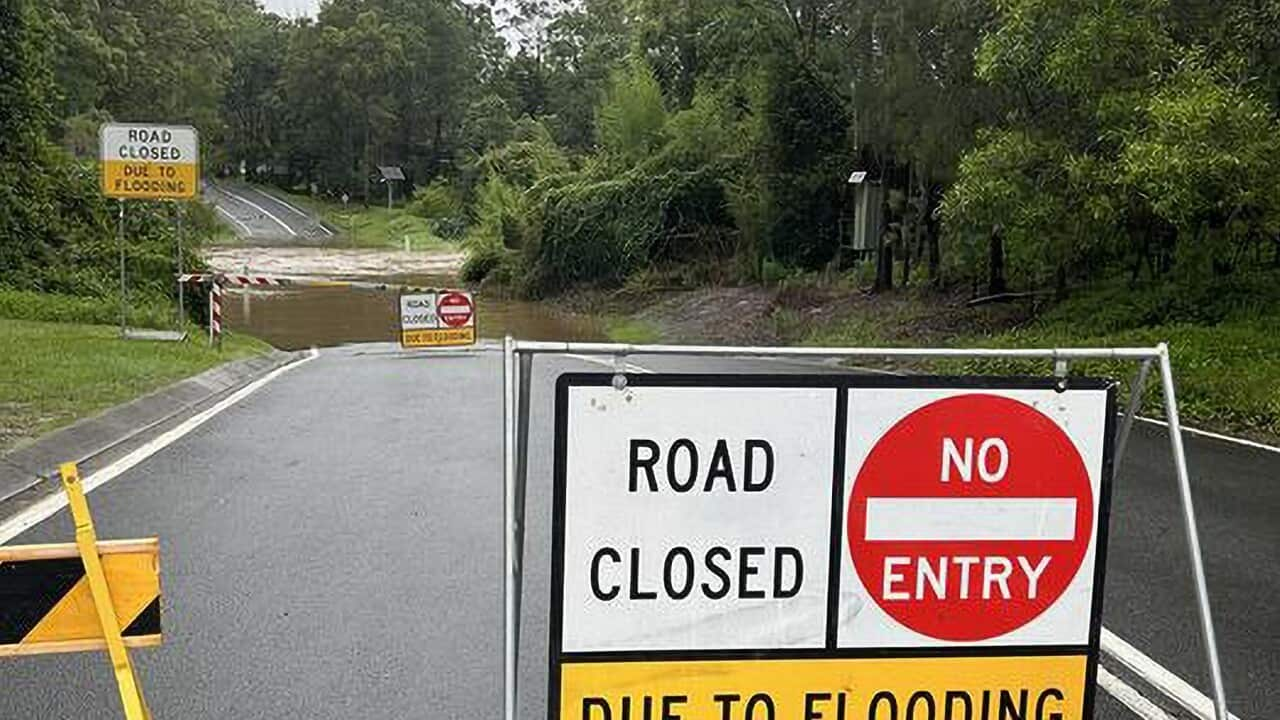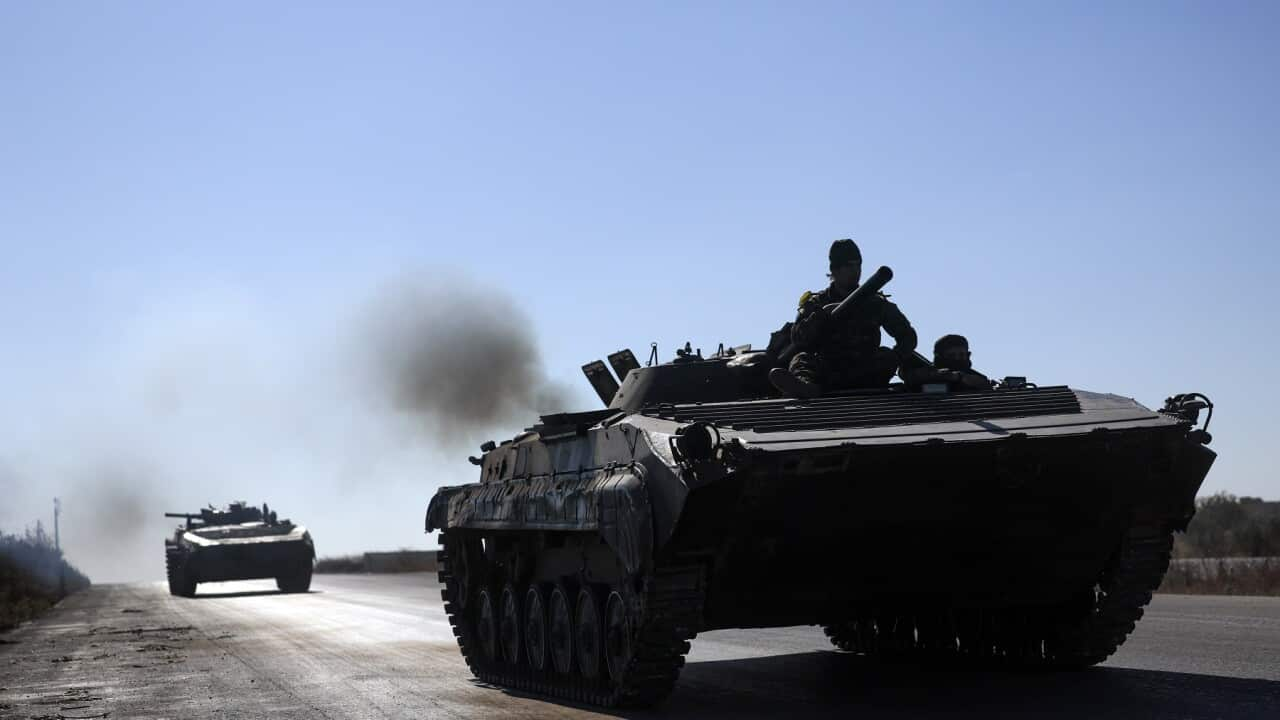TRANSCRIPT
The health and security of the Indo-Pacific region was top of the agenda at the Quad Summit in the U-S state of Delaware.
The Quadrilateral Security Dialogue, commonly known as the Quad, is an alliance between the United States, Australia, India and Japan.
Prime Minister Anthony Albanese met with fellow alliance members Prime Minister Narendra Modi of India, Japan's Prime Minister Fumio Kishida, and U-S President Joe Biden.
It is the last attendance for President Biden who led the first Quad Summit in the height of the COVID-19 pandemic 2021 to better coordinate the international recovery.
Tributes to Mr Biden were heard across the leadership, with Prime Minister Kishida praising the U-S leader for his response to the pandemic and further work toward combatting cancer.
"I wish to express my heartfelt congratulations to you Joe on the fruition of your dedication in the form of the Quad cooperation and I express my esteem for Joe's leadership. The Quad demonstrated strong solidarity in response to the COVID-19 pandemic. In the post-Covid era today, the response to health-related challenges that have proceeded due to the pandemic are even more important. Efforts to deal with regional health and security including cancers is indeed a timely initiative."
The four leaders have announced a new combined effort to eliminate cancers known as the Quad Cancer Moonshot initiative.
It's the expansion of an initiative started by President Biden in response to his son Beau's death from a form of brain cancer.
He says the initial focus of this plan will be combatting cervical cancer in the Indo-Pacific.
"Our goal is to team up to end cancer around the world, starting with cervical cancer. Cervical cancer is one of the most preventable cancers around the world. We have prevention and screening tools and treatments to make it the first cancer to be eliminated. Every year 150,000 women die from cervical cancer in the Indo-Pacific. We can't and won't let that continue. So, I'm proud to announce that our four countries, and those committed behind me, many organisations here today are committing over 150 million dollars for HPV screening and therapeutics."
Australia has pledged $29.6 million [[AUD]] to ensure greater access to cervical cancer screening, vaccination and treatment in the Indo-Pacific.
The Minderoo Foundation has contributed $13.1 million to the initiative [[called Quad Cancer Moonshot]], with the Australian government contributing a further $16.5 million.
Mr Albanese says Australia is set to be the first country in the world to eliminate cervical cancer due to advancements such as the Australian-developed H-P-V vaccine.
He told the Quad Summit that Australia must do more to help their Pacific neighbours.
"One in four global cervical cancer cases occur in the Indo-Pacific, and tragically women in the Pacific die of the disease at up to 13 times the rate of women in Australia. These people are not numbers, they are our neighbours, members of our Pacific family, and we are stepping forward to help."
Indian Prime Minister Narendra Modi says with an issue as broad and complex as cancer, international collaboration is essential.
"In cancer care, collaboration is essential for a cure. (Hindi w English vo:) In order to reduce the burden of cancer, it is necessary to have an integrated approach of prevention, screening, diagnosis and treatment. (English:) As you can see, when the Quad acts, it's not just for nations but it is for the people. This is the true essence of our human-centric approach."
Health and disease-prevention were not the only focuses of the summit though, with much of the proceedings focused at regional security and the threat of China.
President Biden claims China has been acting provocatively and aggressively throughout the Indo-Pacific while saying he believes diplomacy can and should be used to avoid an escalation of hostilities.
"China continues to behave aggressively, testing us all across the region and it is true in the South China Sea, the East China Sea, South Asia, and the Taiwan Straits. Is true across the scope of our relationship, including on economic and technology issues. At the same time, we believe intense competition requires intense diplomacy. I spoke with President Xi in April. And we see this engagement as important for conflict prevention and crisis management amidst our strategic competition."
President Biden says in the last four years, the Quad has achieved a great deal - and today's summit will see the advancement of new security and developmental benefits for alliance nations.
"Four years later, our four countries are more strategically aligned than ever before. And today, we are announcing a series of initiatives to deliver real, positive impact for the Indo-Pacific. That includes providing new maritime technologies to our regional partners, so they know what is happening in their waters. Launching co-operation between coastguards for the first time. And expanding the Quad fellowship to include students from Southeast Asia."
The US's allies were also seeking some assurance from President Biden that despite who gets elected in the November 5 election that these efforts at collaborative diplomacy will continue.
Following talks, Mr Albanese says he believes the Quad alliance will continue.
"Unlike some international forums, the, the Quad is, it does not have a long history and that means it is not defined by a tradition, but it also means it's not confined by it. It means that as it develops it can evolve. And that is what I believe is happening."













